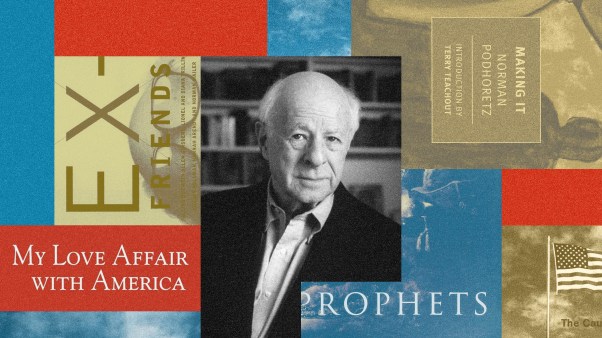Last week Bob Hyatt wrote about the temptations created by the celebrity pastor culture we live in and the harm it causes to our souls. He's not the only one talking about the issue. Both Relevant Magazine and the Together for the Gospel conference are talking about it. The issue I'm referring to is celebrity pastors. Rachel Held Evans' recent article in Relevant, "When Jesus Meets TMZ," seeks to explain the rise of celebrity pastors within evangelicalism. (A panel at the T4G conference will address the same topic in April.) Evans' article does a good job of outlining our corrupt human tendency to make our leaders into idols–a temptation evident from Christianity's earliest days (see 1 Corinthians 3:21), and which has marked every era of the Church. Before Osteen, Warren, and Driscoll, there were Moody, Spurgeon, and Whitefield. Celebrity pastors are not new.
But what is new is the number of celebrity pastors and the speed with which they are being created/coronated. This is what Evans' article doesn't address. Every generation has had a handful of well known pastors, but why are there now so many? What explains the creation of an entire celebrity-class within the evangelical world?
Yes, our human proclivity for leader-worship is as potent as ever, but there is more than a spiritual or psychological reason behind the rise of today's pastoral pantheon. There is a systemic economic force at work as well; what I call the Evangelical Industrial Complex.
First a little background. In 1961, in President Eisenhower's farewell address to the nation, he warned about the unintended effects of what he dubbed the "military industrial complex." Following WWII, for the first time in American history, a permanent arms industry was created to manufacture weapons, tanks, warplanes, etc. This industry employed millions of Americans, and Eisenhower feared its influence over the government, and its need for armed conflict in order to grow, would prove damaging to the country.
He recognized the potential for a self-sustaining cycle of (1) a growing arms industry, (2) supplying an expanding military, (3) resulting in more armed conflicts and fewer resources for domestic needs like eduction and infrastructure. It's worth remembering that this warning was coming from a Republican, an army general, and a war hero, not a Democrat or anti-war activist. Many now consider Eisenhower's warning prophetic given the exponential growth in military spending and wars over the last 50 years. You can watch a segment of his speech below.
So, what does Eisenhower and the military have to do with celebrity pastors? Well, just as America's militarism for the last half century is partially the result of systemic economic forces, so is the rise of the present clergy celebrity-class. There is an evangelical industrial complex that helps create, and then relies upon, the existence of celebrity leaders. Have you ever wondered why you don't see pastors from small or medium sized churches on the main stage at big conferences? Or why most of the best-selling Christian authors are megachurch leaders?
Here's one possibility (the one people like to believe): The most godly, intelligent, and gifted leaders naturally attract large followings, so they naturally are going to have large churches, and their ideas are so great and their writing so sharp that publishers pick their book proposals, and the books strike a nerve with so many people that they naturally become best-sellers, and these leaders are therefore the obvious choice to speak at the biggest conferences. As a result they find themselves quite naturally becoming popular, even rising to celebrity status.
Is this possible? Yes. Does it happen? Sometimes. Is it the norm? I don't think so.
Here's the other possibility (one I've seen from the inside): Through any number of methods–powerful gifting, shrewd marketing, dumb luck–a pastor leads a congregation to megachurch status. Publishers eager for a guaranteed sales win offer the megachurch pastor a book deal knowing that if only a third of the pastor's own congregation buys a copy, it's still a profitable deal. The book is published on the basis of the leader's market platform, not necessarily the strength of his ideas or the book's quality. Sometimes the pastor will actually write the book, and other times a ghost writer hired by the publisher will do the hard work of transforming his sermon notes into 180 pages with something resembling a coherent idea.
Wanting to maximize the return on their investment, the publisher will then promote the pastor at the publisher-sponsored ministry conference or other events. As a result of the pastor's own megachurch customer base and the publisher's conference platform, the book becomes a best-seller. Or if that doesn't work, sometimes sugar daddies purchase thousands of copies of the book to literally buy the pastor onto the best-seller's list where the perception of popularity results in more sales. (Yes, it happens. Not a lot, but it does happen.)
Stay tuned for Part 2.








